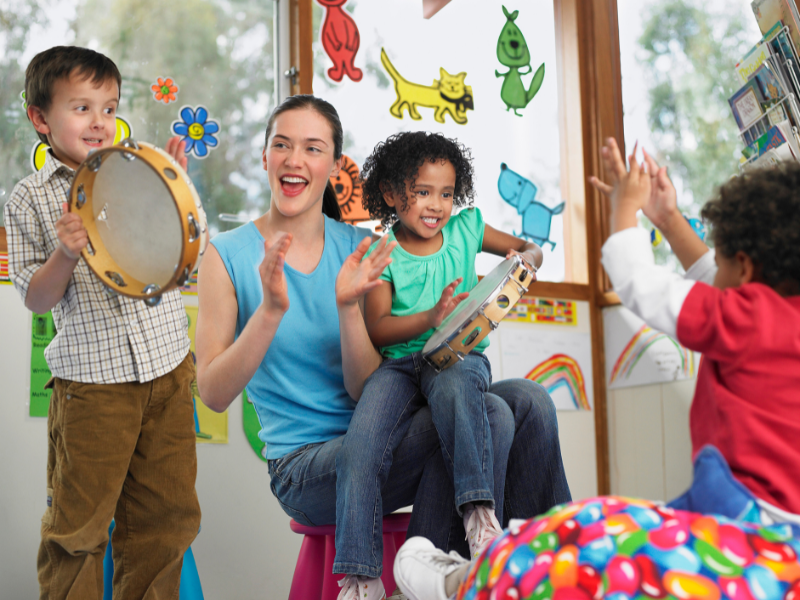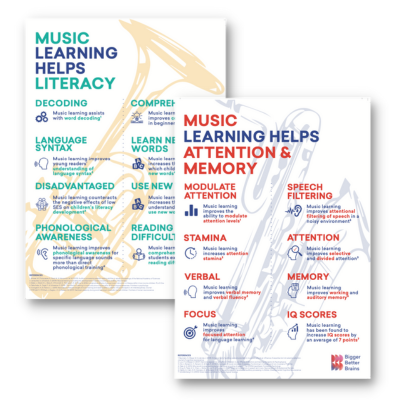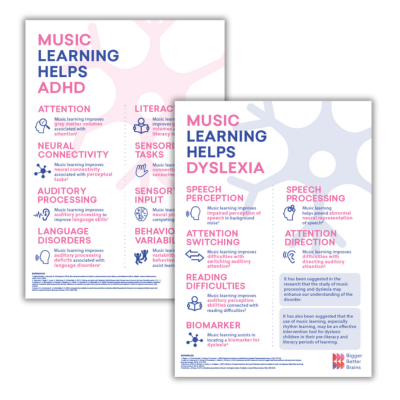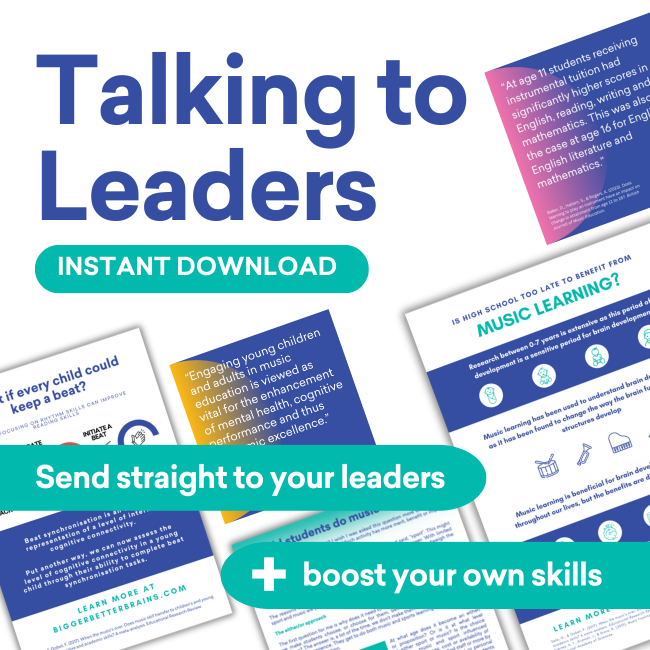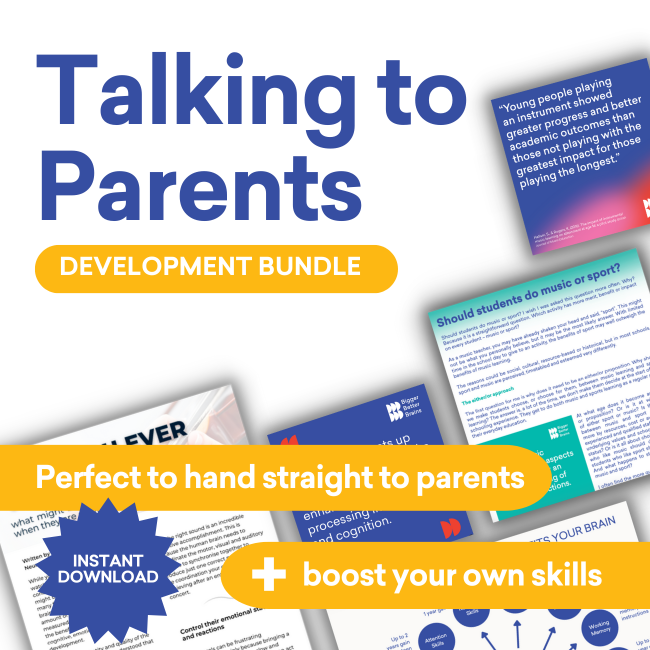
Research Updates

Here at Bigger Better Brains we believe that through educating yourself, you can then educate and affect positive change in your community.
With all of the research in the field of neuromusical science, our BBB Research section serves as a content hub for you. We regularly share findings and break down the latest research to educate and inspire discussion. We hope you enjoy this page on our website and share BBB news with your colleagues, parents and students.
Starting music at 6 years old supercharges the brain
Here is one of those research sentences that are so useful when we are explaining how music learning impacts on every child’s development.
A solution to stuck song syndrome!
Finally, that song that keeps playing on a loop inside our heads for no apparent reason has a name – stuck song syndrome!
Auditory processing may be different for girls and boys
Do men and women hear differently? Maybe. This report speaks on the lack of auditory processing differences at birth and in young children, but how differences may appear in adolescents as puberty changes our brains and bodies.
Music improvisation shuts down our inner (brain) critic
If we can shut down our inner critic when we improvise, does that mean we could transfer that idea across to other parts of our lives. And, what does that mean for classically trained musicians?
The heightened skills of musicians to pinpoint differences
If you are a musician, then you really do hear the world differently! This study looked at expectation and prediction, and if musical training had any influence on the differences we hear.
Active Music Learning Infographic
Does all music learning enhance brain development? This is an important question as we examine the research around the impact of music learning on the brain.
Are pianists at an advantage when learning surgical skills?
In a recent article in the journal Music and Medicine, a team of researchers studied a group of pianists to see if the benefits of learning piano translated into benefits when learning complex and refined motor skills in another domain, specifically surgical skills.
What do parents need to know about music and the brain?
Is this you…? I teach music. TICK. I want to keep my students for longer. TICK. I am struggling to keep my students for longer. YEP. We can’t wait to share 4 things that will get parents on your side and help you keep your students for longer!
Orff-based music training induces plasticity in the developing brain
Which music education method is best? This is a question we receive often at BBB and the answer is, we are not sure yet. The reason why we aren’t sure just yet is that there has not been an exhaustive amount of research on any one method of music teaching.
Singing and reciting rhymes can have a positive effect on babies’ language development
Do you have a favourite song or rhyme that you sang to your baby? Or do you remember a song that was sung to you when you were very young? Well it turns out that the more we are sung to or hear language in a rhyming style, the more sensitive our brains are to language, the larger our vocabulary will be and the earlier we could learn how to moderate our moods.
Fireworks 005 - BBB Educators continue to inspire
Issue 005 of Fireworks, the BBB magazine is now available to all BBB+ members. Packed with BBB success stories and updates, a new opinion piece written by Dr Anita Collins, and so much more. Fireworks will inspire and motivate you to advocate for music education.










